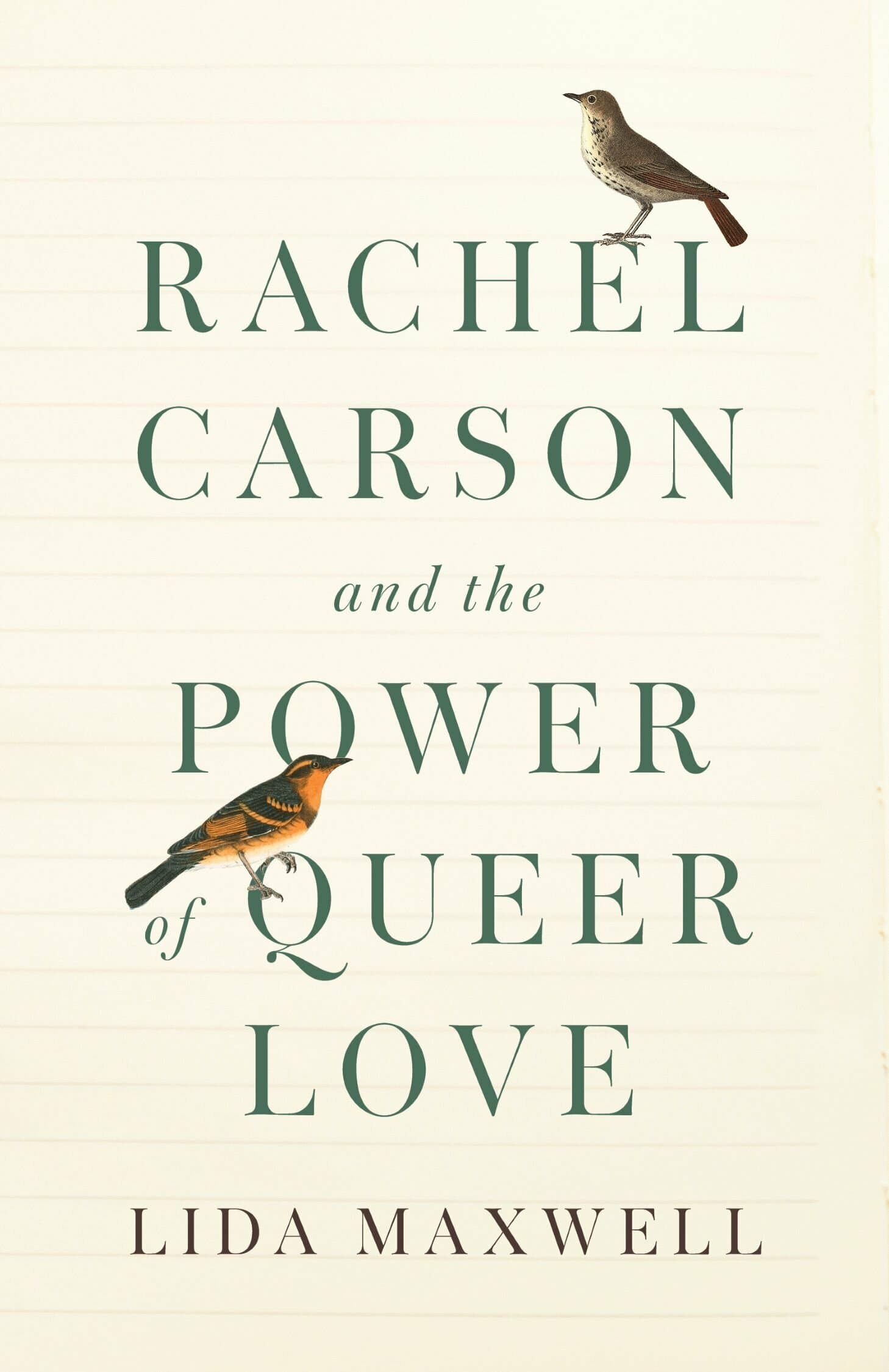Rachel Carson and the Power of Queer Love
Award Winner
2025: Independent Publisher Book Awards (IPPYs)
Gold Medal in the LGBTQ+ Non-Fiction Category for the 2025 Independent Publisher Book Awards (IPPYs).

How Silent Spring stands as a monument to a unique, loving relationship between Rachel Carson and Dorothy Freeman, and how such love underpins a new environmental politics
After the success of her first bestseller, The Sea Around Us, Rachel Carson settled in Southport, Maine. The married couple Dorothy and Stanley Freeman had a cottage nearby, and the trio quickly became friends. Their extensive and evocative correspondence shows that Dorothy and Rachel did something more: they fell in love.
In this moving new book, Lida Maxwell explores their letters to reveal how Carson's masterpiece, Silent Spring, grew from the love these women shared for their wild surroundings and, vitally and increasingly, for each other. Carson had already demonstrated a profound environmental awareness by the time she purchased her home in Maine; Maxwell proposes that it took her love for Dorothy to open up a more powerful space for critique. As their love unsettled their heteronormative ideas of bourgeois life, it enabled Carson to develop an increasingly critical view of capitalism and its effects on nonhuman nature and human lives alike, and it was this evolution that made the advocacy of Silent Spring possible.
In Rachel Carson and the Power of Queer Love, Silent Spring's exposé of the dangerous and loveless exhaustion of nature for capitalism's ends is set in bold relief against the lovers' correspondence, in which we see the path toward a more loving use of nature and a transformative political desire that, Maxwell argues, should inform our approach to contemporary environmental crises.
—Michelle Nijhuis, author of Beloved Beasts
"In this stirring, often revelatory account of Rachel Carson's queer relationship with Dorothy Freeman, Maxwell challenges us to ask for more—more pleasure, more beauty, more wonder, more mystery—for ourselves and the earth."
—Sabrina Imbler, author of How Far the Light Reaches
"It's not an exaggeration to say that Maxwell's work completely changed how I move through my daily life: who I love, how I love, and the way I think about the non-human world around me."
—Liza Yeager, radio producer and writer
"It is no longer enough to recycle or compost, or to shift our consumption to less energy-intensive items; we need to desire otherwise and reshape our cities and pastimes to excite other desires. This book offers an unusual and frequently moving reading of Rachel Carson to shift the tenor of climate writing today."
—Lisa Disch, author of Making Constituencies
"Maxwell makes crucial interventions into the study of ecological destruction by placing heteronormativity at its center."
—–Elisabeth Anker, author of Ugly Freedoms
"Reading Carson and Freeman's letters, Maxwell declares, have taught her that 'queer love can change the world.' An impassioned analysis."
—Kirkus Reviews
"Rachel Carson's environmentalist tract Silent Spring was profoundly influenced by her romantic relationship with her neighbor Dorothy Freeman, according to this bracing treatise.... A stimulating blend of biography and queer theory, this intrigues."
—Publishers Weekly
"Rachel Carson and the Power of Queer Love promotes harmony with nature through an impassioned fusion of biography, cultural critique, and environmental advocacy."
—Rebecca Foster, Foreword Reviews
"But the point of the book isn't that we should take individual action—it's about broader structures and narratives. Maxwell's book holds lessons for all readers about acknowledging, and then escaping, the structures that ensnare us."
—Brooke Borel, Scientific American
"Drawing on both primary sources and academic theory, Maxwell makes a compelling argument that is both relevant and moving."
—Lydia Fletcher, Library Journal
"Rachel Carson and the Power of Queer Love provides an original and stirring account of a non-commodifying queer love between two women and nonhuman nature—a love that was the defining relationship of Carson's life and yet has been downplayed in heteronormative tellings of her story.... This book is a must-read for scholars interested in queer ecologies and environmental history more broadly, and it will certainly be enjoyed by a general reading public as well."
—Daisy Reid, H-Environment




